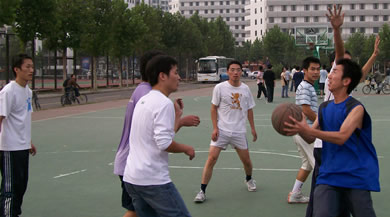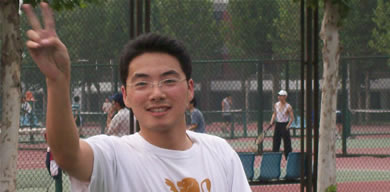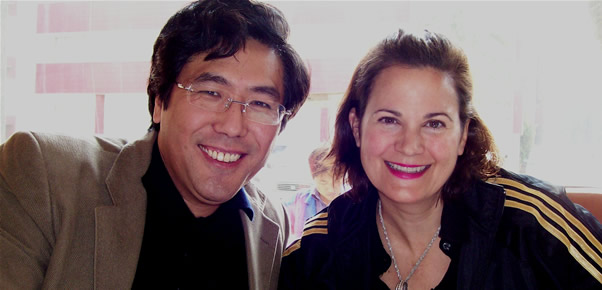Seeking Global Connections
Snow’s Blog 9: Respect the Guanxi
November 20, 2007
By Nancy Snow
Nancy Snow, associate professor of communications, is a visiting senior scholar and professor in Beijing, China, through November. She is teaching a graduate course in public diplomacy at Tsinghua University’s School of Journalism and Communication, as well as working on joint research projects with Chinese faculty. While overseas, she will be sharing her experiences.
Lesson Nine: When in China, respect the concept of “guanxi” or connections.
Back home, I am energized by meeting people and getting to know who they are and who or what they know. Such connecting does not always have any end goal in sight, but it often leads to the “I know someone who can help you” answer to a question. I’m curious about how each individual fits into a larger network. Think Malcolm Gladwell’s “The Tipping Point,” which I’m always recommending to my Chinese friends. I’ve assigned his book for reading in my Cal State Fullerton persuasive communications class and it’s always a winner, along with the classic Dale Carnegie “How to Win Friends and Influence People.”
In China, you have to secure the social deal to make it all happen. Knowing how to go about making and keeping connections is an art and science. The Chinese seem to be getting more sophisticated about purposive guanxi with every skyscraper built.

Robinson and I played basketball with these fellows. We won!
My Tsinghua students are very well versed in guanxi, particularly in the oft-repeated request for letters of recommendation. I believe that some think that I may hold a magic wand in my hand if I write a letter on their behalf. The problem is that my guanxi only goes so far. For instance, I’m reluctant to write a letter of recommendation for anyone I have not had in class and for whom I’ve not assigned a final grade. So far I’ve agreed to write just one letter of recommendation for a master’s student applying to the USC Annenberg School for Communication doctorate program. I’m not writing this as any favor. I believe this student is well qualified to successfully compete with fellow doctoral students in America. Her English is near perfect. She has served as my interpreter/translator on many occasions and is 100 percent professional in her demeanor.
Other students find out that I’m writing this letter and they approach me with great anticipation. They all are very charming and America is to many of them still a dream place to do a post-graduate degree. If I could, I would nod my head like Barbara Eden in “I Dream of Jeannie” and send them all to America. There’s no “Why do they hate us?” anxiety about the pull of higher education in America and these students are likely to become America’s greatest unofficial public diplomacy ambassadors.
America could very well be the online king of guanxi, though we may call it by a different name, such as social networking or schmoozing. Look at all our Web 2.0 connection creations, namely Facebook, MySpace, LinkedIn, Second Life, Friendster, eBay and craigslist, among many others. We’ve colonized the World Wide Web with our social networking prowess. Other countries are following suit by adapting the digital social network to their own needs.

Robinson Xiang, doctoral student, who has taught me much about Chinese
traditions.
In China, being able to eat heartily and drink a bit of alcohol (not in excess) is good guanxi. I had the experience of being offered Tsingtao beer when I was in Qingdao to deliver a speech about U.S. media coverage of the Made in China crisis. The conference officials turned to my Chinese friends with big satisfied smiles and proclaimed their pleasure at my willingness to try their local cuisine and famous local beer. Many officials came over to the table to say kind words and end with a “Kanpai” toast. I was careful not to over imbibe, which would certainly be bad guanxi. Nevertheless, being a teetotaler is probably not good guanxi, but a moderate drinker can hold one’s own.
The bottom line for good guanxi is a respectful appreciation for the social relation and a good memory. As Frederik Balfour reported in Business Week (11/08/07, “You Say Guanxi, I Say Schmoozing”): “Guanxi goes back thousands of years and is based on traditional values of loyalty, accountability and obligation — the notion that if somebody does you a favor, you will be expected to repay it one day.” Don’t just expect things to be handed to you but pay it forward.
I could never fully repay China in general and Beijing for all the good guanxi times I’ve had, but I’ll certainly keep trying.Nancy Snow’s email address is nsnow@fullerton.edu.


